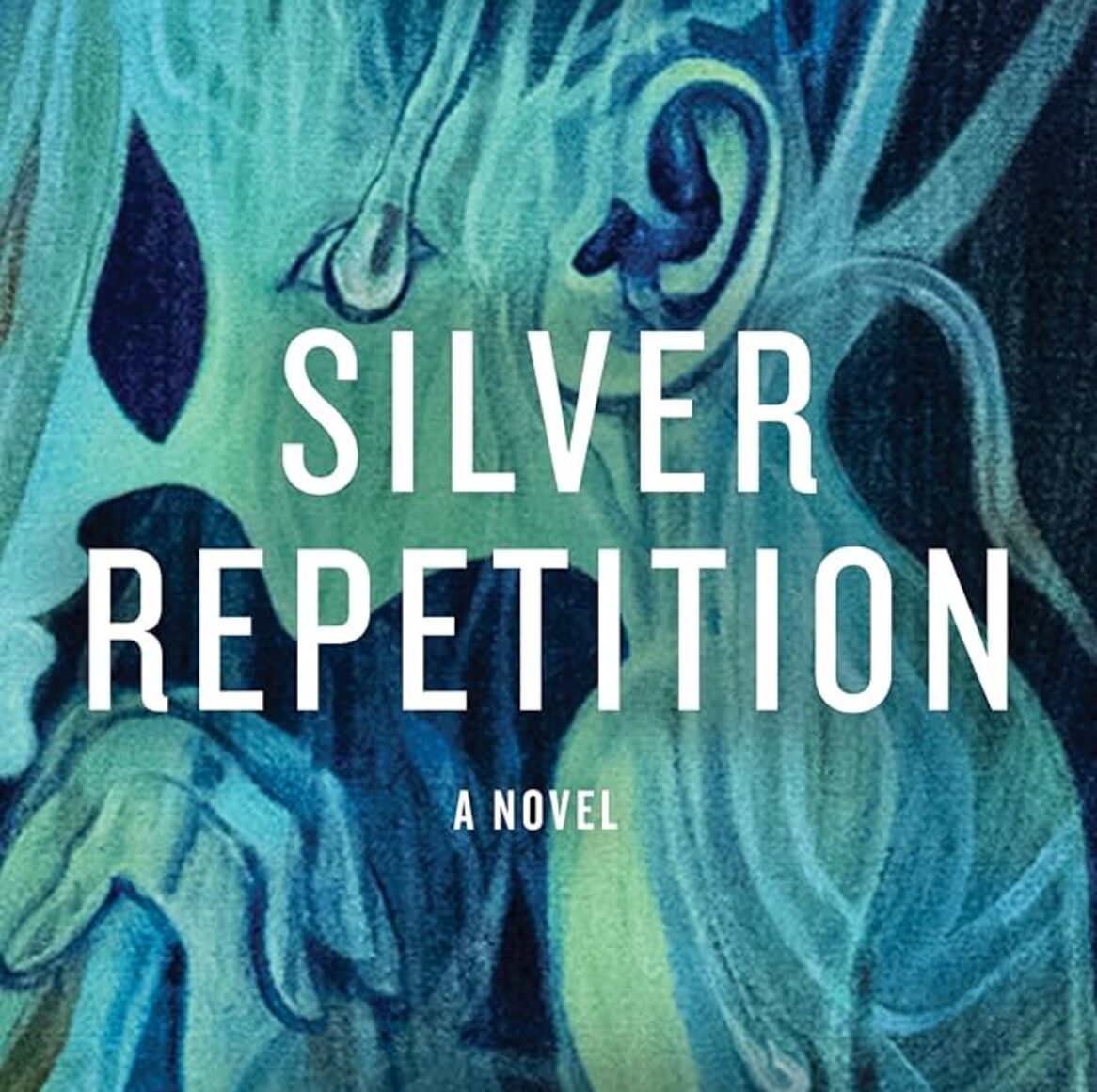
Silver Repetition
Lily Wang
House of Anansi Press, 2024
Review by Maria Isabel Martinez
In the opening pages of Lily Wang’s debut novel Silver Repetition, Yué Yué is at the Poetry Jazz Café with her date Johnny, whose friend is in the band performing on stage. It is a scene plucked from any contemporary twenty-something-year-old’s life: Yué Yué forgets her ID and sips from Johnny’s glass, refusing to look at him because he’s attractive—and noncommittal. The narrative moves through the contours of their relationship for some pages until Yué Yué receives a call from M who reveals something daunting about Johnny. Without dialogue, Wang renders this revelation in the idiom of Yué Yué’s inner landscape, a language that often bursts with images and metaphors that accumulate and shape the text: “Blue clots appear on the line. Her words like blue blood in my stream, all my veins turn into lakes at the confluence of those words.” It is bad news that M delivers, and though the news alters Yué Yué’s perception of Johnny, the relationship continues, taking on a dance of tenderness and nonchalance. Yué Yué focuses her attention on gestures of coupledom. When Johnny invites her over to his apartment, she notes that he “sets the bags atop his dining table and passes me his groceries one by one.” The allegation hovers overhead, haunting the rest of the text, which quickly becomes inhabited by Yué Yué’s parents, her younger sister Emily, and even Little Yué Yué—her child self.
Sitting with Johnny in his basement apartment under the kitchen light, a scene with Yué Yué’s parents intrudes in medias res and we are suddenly at their family home, also sitting at the table. The shift is akin to the changes that happen in one’s dreams, where characters and settings transform suddenly, imposing their own logic. Silver Repetition operates as a dream text—Yué Yué herself often refers to her dream patterns—though the waking life and dream life scenes closely resemble one another. There is a sense that the story is happening in this liminal space; that the two realms are bleeding into one another.
Little Yué Yué is the heart of the novel—she is the site where tenderness meets melancholy, where present-day Yué Yué is brought into focus. In this way, Wang renders a contemporary fixation on contacting, even healing, one’s inner child with the purpose of soothing emotional pains or traumas. Yué Yué grieves her Chinese homeland, her language, her family members. She is worried about her mother’s illness. She spends time in her friends’ basement apartments as a young adult and remembers living in a basement apartment as a child, starved of sunlight: “While I envy their independence, coating those feelings of envy is the stale yellow pollen left over from childhood. Summers spent sitting on the landlord’s porch steps until their returning van plugged out the light, sometimes crawling up to their living room from the shared laundry, stretching our weary bodies across their cobalt couch.”
Early in the novel, Yué Yué reads a short story by J. D. Salinger and recalls how he opens the story with a woman who by the end seems irrelevant to Yué Yué. She says, “I feel like it’s two stories.” But here, Johnny is the means through which Yué Yué’s family comes to inhabit the text. His presence arouses memories and dreams. The space and attention given to Yué Yué’s familial story suggests its significance far outweighs that of the Johnny story. The relationship between the two plotlines lends Silver Repetition its resonance. The novel builds on themes of longing and dream images that Wang has explored in their debut poetry collection Saturn Peach (Gordon Hill Press, 2020) and chapbook Everyone in Your Dream is You (Anstruther Press, 2018). But Silver Repetition is unique in its offering; it is a coming-of-age that requires Yué Yué to access various moments in time and space. It does not look in a single direction but is a journey that explodes beyond present, waking life.
Maria Isabel Martinez is a writer based between Toronto and Montreal. She is the inaugural Susan Jeanne Briscoe Fellow in creative writing at Concordia University. Her writing appears in The Ex-Puritan, Femme Art Review, and Public Parking, among others. She is working on her first novel. (@maisamar_)